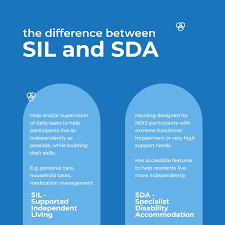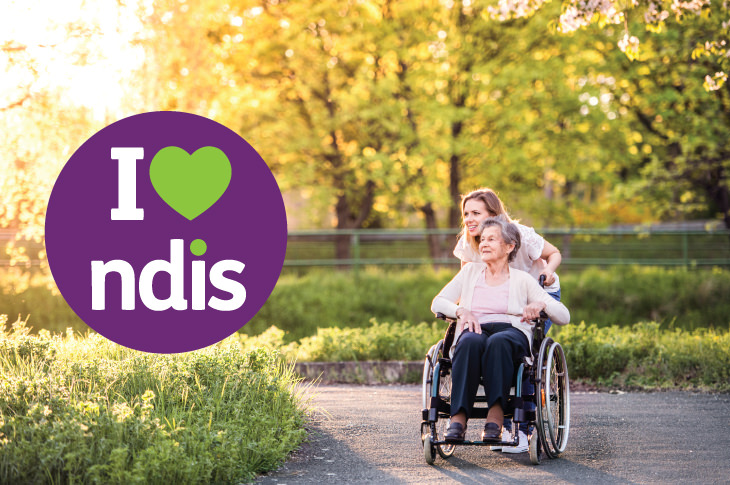Major Difference Between SIL & SDA
The National Disability Insurance Scheme (NDIS)is the first Australian national scheme to help disabled people. The scheme grants direct assistance to those with disabilities who require it.
You've probably heard those phrases SIL and SDA If you're a member of an NDIS plan or are contemplating applying.
Approximately 4.3 million people living in Australia have a disability. The program aims to provide around 500 000 Australians with significant or permanently disabled conditions with help and funds over the coming five years.
SIL and SDA are two distinct types of accommodations for disabled people. SIL is a shorthand for Supported Independent Living, and SDA refers to SDA, which stands for Specialist Disability Accommodation.
NDIS participants are responsible for the types of support and services they get. Awareness of the fundamental distinctions between the two options is important.
What is Supported Independent Living (SIL)?
Supported Independent Living (SIL) is one of the forms offered by NDIS funding. The support is provided to people who have disabilities that are mental or physical. Require them and would like to live as independent as possible.
If someone with an impairment cannot reside independently or live with their family members, SIL can assist those with disabilities. SIL offers them a chance to receive the assistance they require in a home shared with others.
SIL offers them the opportunity to live a life of independence, enjoy an active social life and receive the assistance they require. Residents of SIL receive support daily through tasks that require personal care, such as washing and dressing.
It also covers household chores like cooking, shopping, and cleaning. It also aids with medical requirements like managing medications. SIL is a program designed to assist individuals in improving their skills and abilities and encourage them to live as fully as possible.
What is Specialist Disability Accommodation (SDA)?
Specialized Disability Accommodation (SDA) offers accommodation to those who require specialized housing solutions. SDA is designed for those who require a lot of support because of a severe functional impairment.
SDA refers to the house or apartment in which the person in need lives. SDA funds aren't geared toward assistance services. The funds are intended for the facilities in which support is offered.
The residents can choose to reside independently or share their homes with others based on their requirements. They can also choose suitable housing for their specific needs and preferences.
So, What's the Difference Between SDA and SIL?
SDA is a term used to describe a specially developed accommodation or an existing home designed to meet the specific requirements of those who require intensive medical attention.
However, on the other hand, SIL refers to the support and services for daily living offered to individuals in need while encouraging individuals to improve their capabilities and be as self-sufficient as possible.
Individuals can receive SIL or SDA both in the event they're eligible. If someone needs the two daily living assistance for everyday tasks as specially-designed and modified homes, SDA and SIL will be paid for separately under the NDIS plan.
The separate funding of SIL and SDA allows them to live in a home suitable to their requirements and receive the SIL support they want.
The funding split allows the person to alter the support services without relocating from their SDA-funded residence. It is important to note that they'll have to apply again for SDA funding should they decide to relocate.
Conclusions
We hope you can understand the distinction between SIL and SDA. Look no further if you're searching for an accredited NDIS provider that meets the highest personal and organizational guidelines.




Comments
Post a Comment